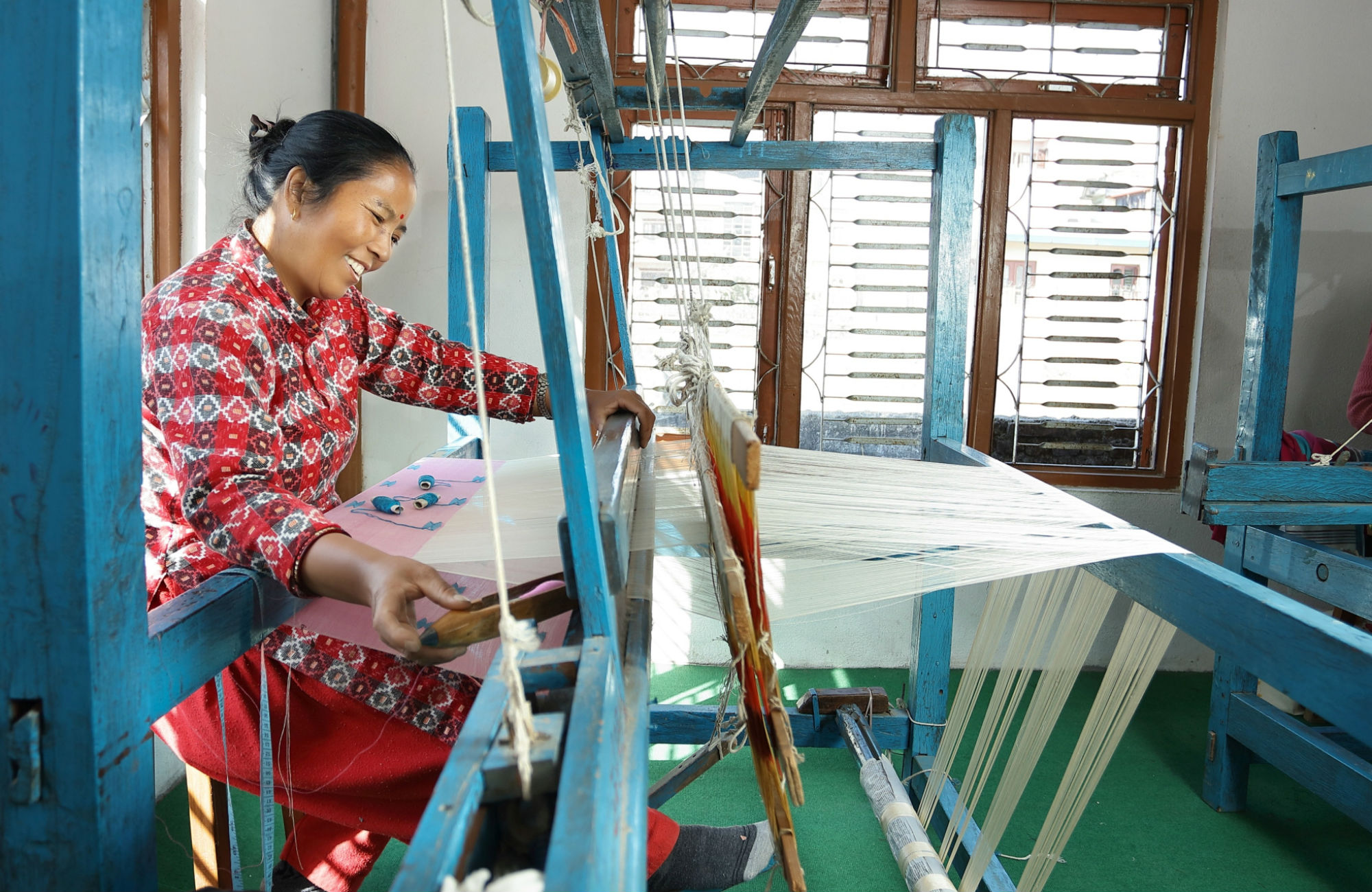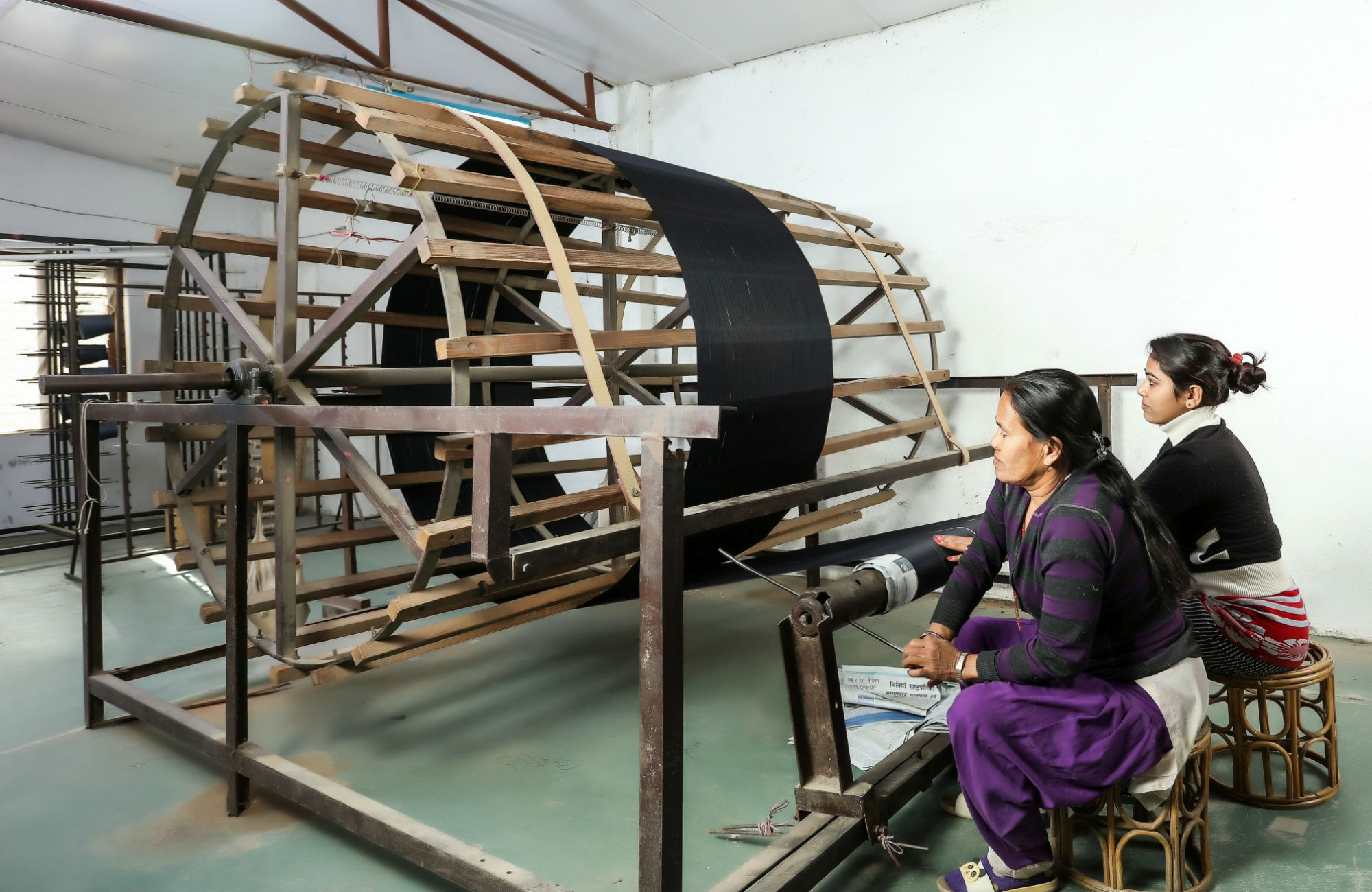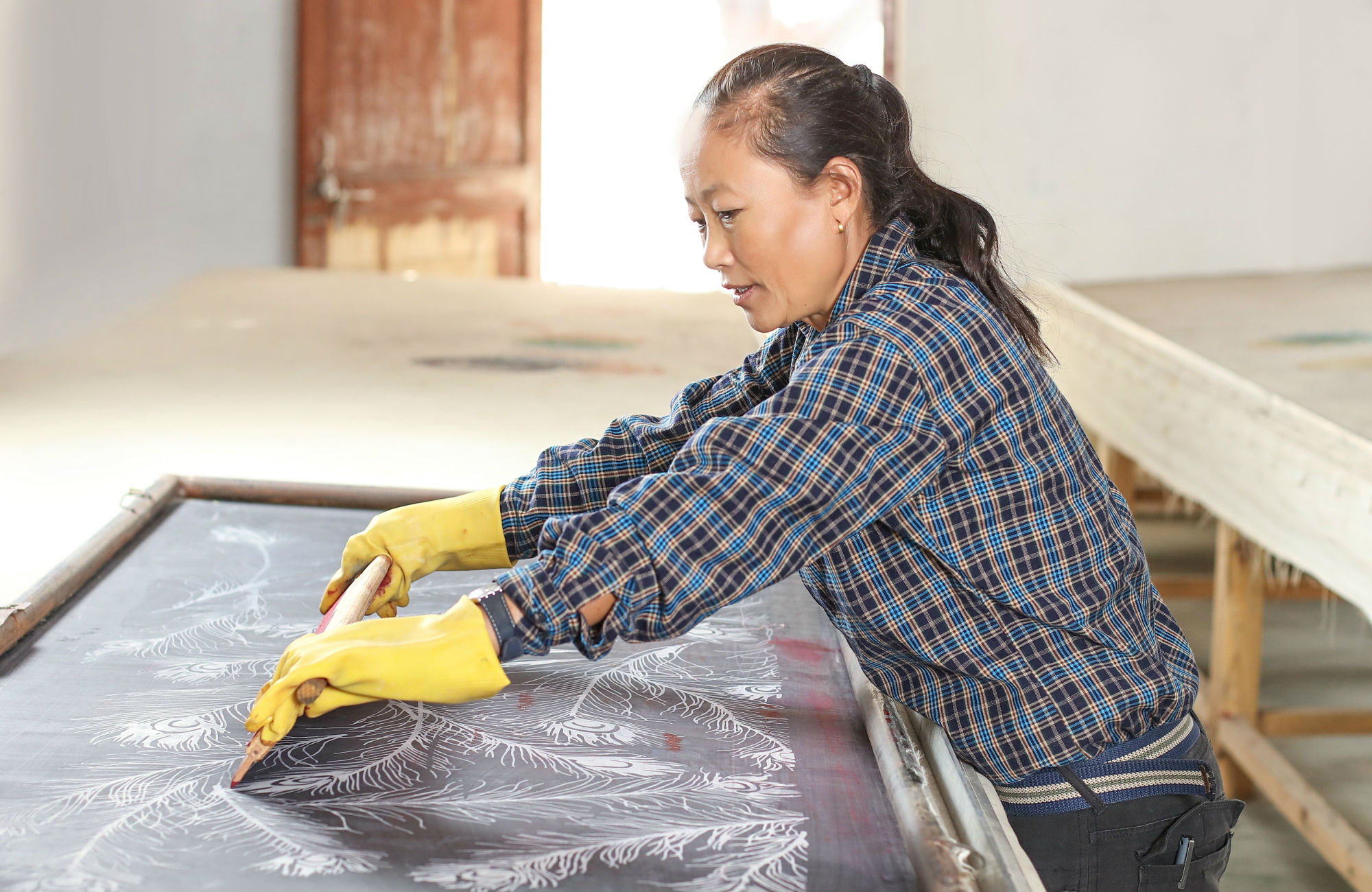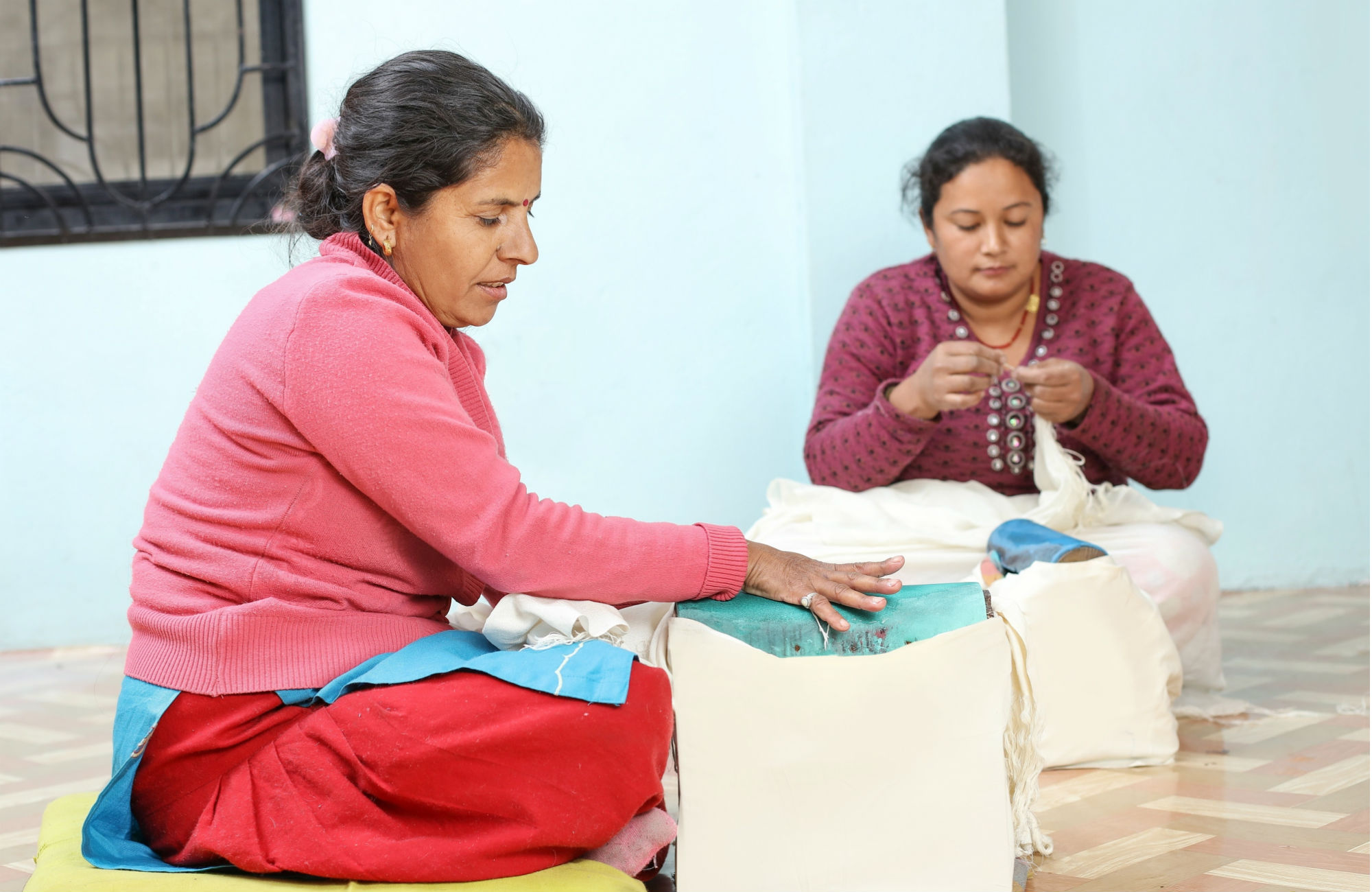
Maheela: Hand-woven scarves from Nepal
The shawls and scarves from Maheela not only look chic, they also tell very special stories about the women who made them. Like the story of Goma Thopa (40), who comes from a small village in the east of Nepal.
The story of Goma Thapa
At the age of 12, Goma Thapa's wedding was arranged by her parents. But then they learned that the son-in-law is sterile. An essential requirement to be recognized in the society of Nepal and to provide for old age was no longer given. Nevertheless, the wedding took place, the daughter's well-being was less important than breaking the word in front of the village community.
This was followed by a difficult time for Goma Thapa, during which she was sexually abused, beaten and mistreated for several years. She finally heard from neighbors that the Women's Foundation Nepal (WFN) supports women who were in a similar difficult situation.
Today she enables herself to live far from violence
At the age of 30 she managed to escape her painful life. She went to the WFN, where she received the necessary medical care, psychological support and legal advice. She also completed an apprenticeship in the traditional weaving trade. Today she is divorced and enables herself to live a self-determined and independent life with her work, because she receives a living wage for her valuable manual labor. She herself says:
“I was born again when I came to WFN. By working in the cooperative, I can lead a self-determined life, save and secure myself for my old age ”.

When you buy a Maheela scarf, you automatically support the WFN women's cooperative. Maheela is a piece of development cooperation that promotes good working conditions.
Sustainably produced in Nepal
Each scarf is hand-woven by Nepalese women on their traditional looms and is therefore unique. Not only are health, social, societal and ethical standards observed, but also environmentally friendly production and only valuable natural fibers from near-natural agriculture are used.


Scarves and shawls are created that redefine fashionable elegance and social responsibility in a unique way. A lively partnership with economic and social cooperation at eye level with people who have taken one another very deeply. Maheela proves that exclusivity and fairness can be easily combined.
We find it very worth supporting, so we met Martina Göbel, founder of Maheela, for an interview and asked her our three questions.
1. What was or is your motivation behind Maheela?
18 years ago I went to Nepal for the German Development Service and worked in Kathmandu for a women's rights organization. The organization gives abused and raped women and children accommodation and a perspective on life in which violence no longer occurs: They learn to read and write there, receive legal advice, the children can go to school, but also through dance they come to terms with their terrible experiences and slowly forget them . I was confronted with the challenges a Nepalese woman has to face. I know about your worries, needs and fears. That motivated me to found Maheela Germany and to work to ensure that there can be better living conditions.
My vision is: to be able to continuously employ and reward 80 women by selling the scarves.
In 2016 I founded the company Maheela Germany. Maheela simply means “woman” in Nepali, because the simple but elegant shawls and scarves are hand-woven by a women's cooperative in Kathmandu. My goal is fair, living wages without child labor, while maintaining maternity leave and without price pressure.

The scarves are made from silk, wool and cashmere. The designs are developed with the women in Nepal, some of them are still being adapted to the European market. For me it is important to do a meaningful job and that was achieved with the founding of the company. Because Maheela also stands for:
Mut for self-determination, Ajobs for women in Nepal, Hand made products, Eselected materials in 100 percent natural fibers, Elivelihood development for women, Lpassion for social projects, AExceptional quality in traditional craftsmanship
I am grateful that I enable women in Nepal to build a livelihood by selling their products and that I can show in Germany what they can produce in the highest quality by hand. We are successful together.
2. What do you advise our readers: What can you do specifically for a better future?
For me, the following quote from Mahatma Gandhi points the way. It is valid for all of us: "Be the change that you wish for yourself in this world".
3. How do travel and sustainability fit together for you?
For me, travel and sustainability are to be reconciled if I behave in an environmentally and resource-friendly manner because I have committed myself to an ethical, moral attitude. It is also about the respect that people in other parts of the world are shown, respecting their individuality and treating them with dignity.

Lisa Klakow
Lisa helped set up the Good Travel Blog and will write for us as a freelance author in the future. She is passionate about traveling and dancing around the world with a small ecological footprint.






COMMENT